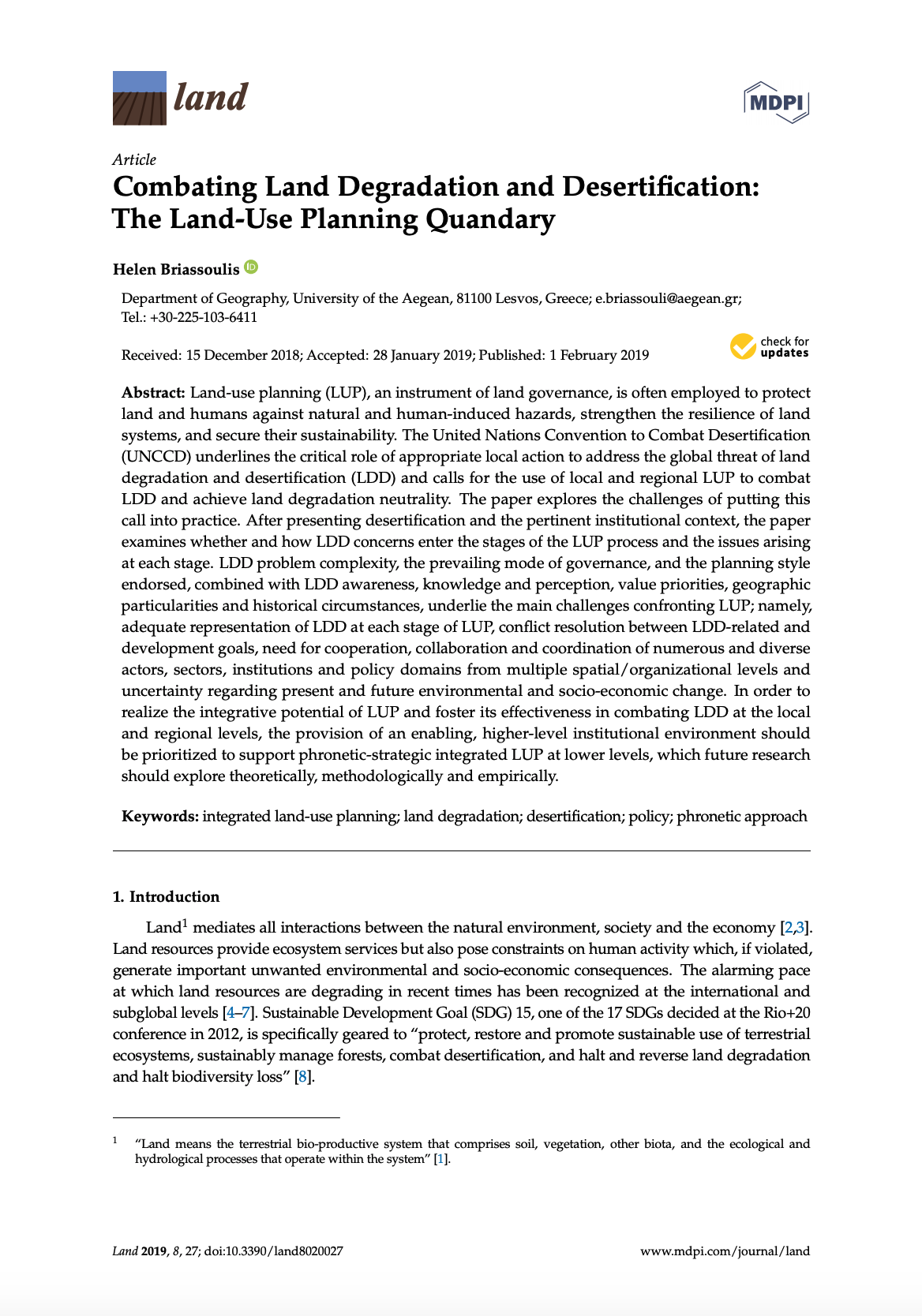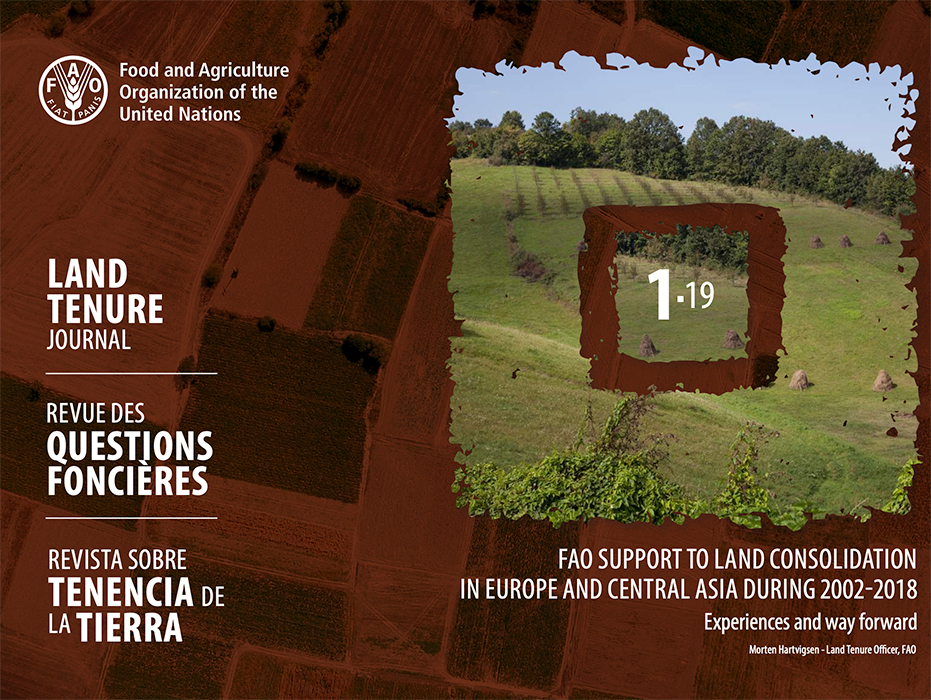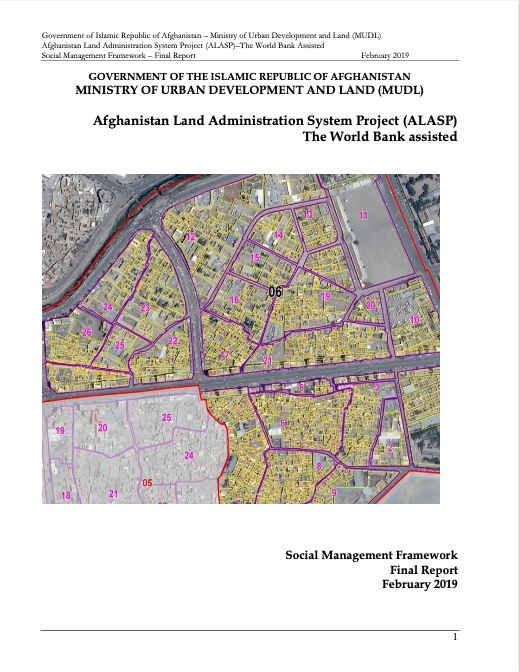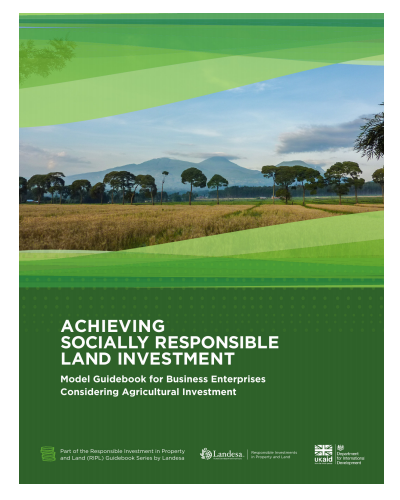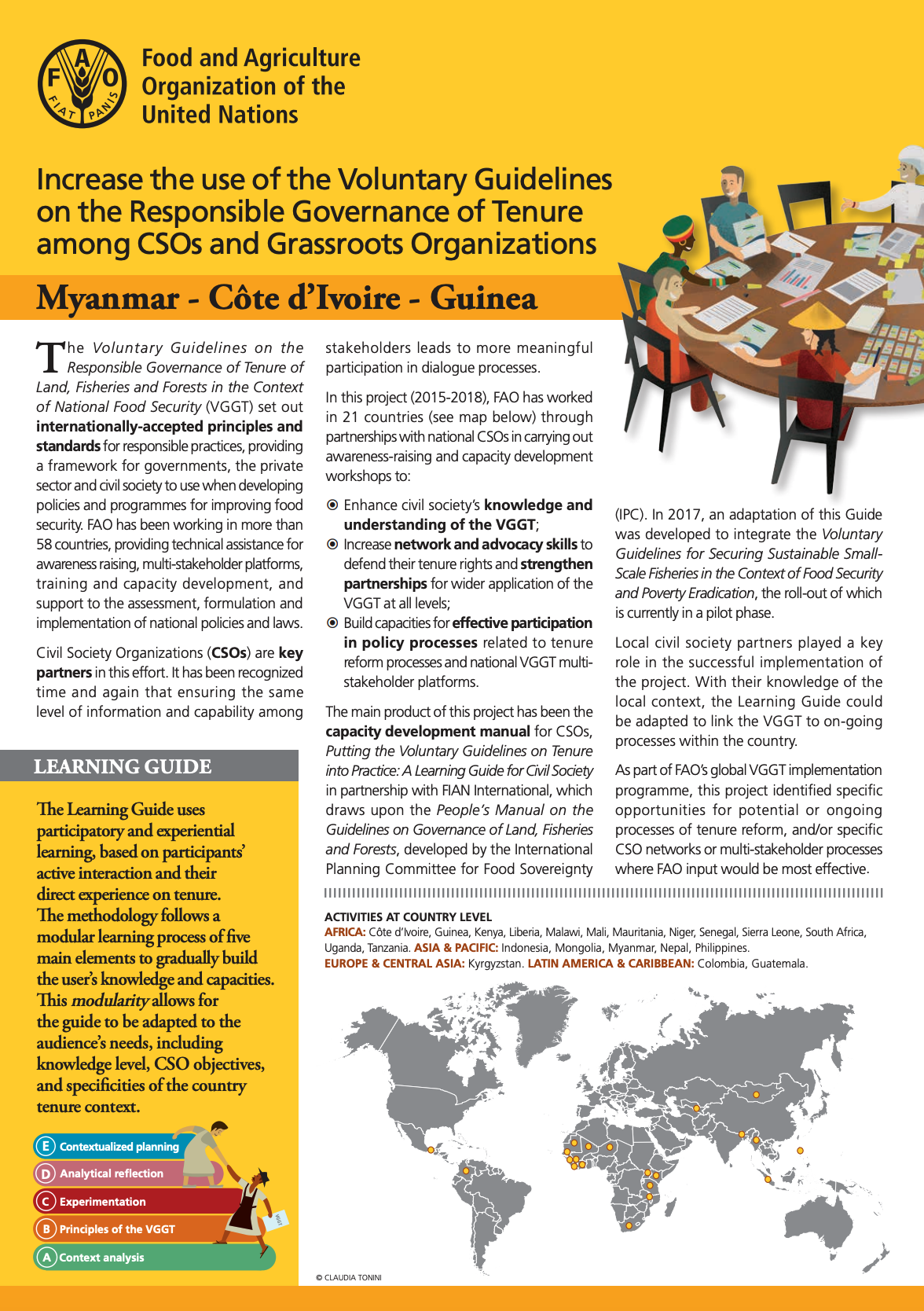Combating Land Degradation and Desertification: The Land-Use Planning Quandary
Land-use planning (LUP), an instrument of land governance, is often employed to protect land and humans against natural and human-induced hazards, strengthen the resilience of land systems, and secure their sustainability.

